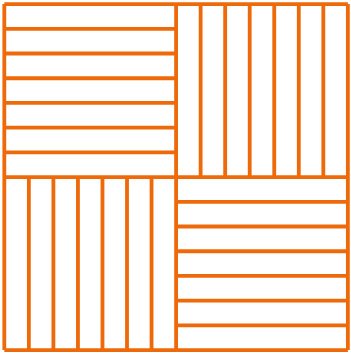Dr. Stephen Thomas: The Lack of Covid-19 Funding Impacts Local Efforts To Vaccinate Working-Class People
This article is part 1 of 4 articles on Covid-19 and the Black community. The Intersection Mag received a grant from The National Association of Black Journalists to report on Covid-19 and the Black community.
Important Note: Since publishing this article, the Centers For Disease Control awarded the Maryland Center For Health Equity a $1 million contract to reduce health disparities in diabetes and prevention. The announcement was made on Oct. 14, a month and two days after the publishing of our article. Additionally, the Biden administration recently announced that it plans to collaborate with local pop-up vaccination clinics, and provide millions access to home rapid testing, available through CovidTests.gov. Dr. Thomas is the director of the Maryland Center For Health Equity. In the past, he used his H.A.I.R (Health Advocates In-Reach) program to do vaccine pop-clinics as well as screen for other diseases through blood tests.
Dr. Stephen Thomas, one of the nation’s leading scholars on health equity, is a professor of health and management and the director of the Center for Health Equity at Maryland University School of Public Health. I wanted to talk to him about the new booster, and what people should know about it.
The Federal Drug Administration has just cleared the way for a new booster, developed by Pfizer and Moderna, to be distributed to the general population. The new booster was created to combat the Omicron subvariants, BA.4 and BA.5.
Thomas has been conducting research within the Black community for decades. His area of expertise is in chronic diseases, health disparities, and social determinants of health in Black communities. His research was used to make the Maryland Health Improvement and Disparities Reduction Act of 2012. In 2019, Gov. Larry Hogan reappointed Thomas to the Maryland Health Care Commission. In 2021, Thomas was one of the principal investigators in a 2021 study that examined how COVID-19 impacted Prince George’s residents, how local governments tackled high infections and residents’ attitudes toward medical officials. It recommended that the Prince George’s County Health Department creative ways to get the vaccine to its residents. The local health department conducted vaccine clinics in economically distressed neighborhoods, and at schools. Thomas with local barber shops, salons, and medical professionals throughout the county to get Black and Latinos vaccinated, and educated. The Biden administration partnered with Thomas to make his program national.
To my surprise, Thomas didn’t only talk about the new boosters. He talked about how the lack of federal funding has negatively impacted his work to get Prince George’s County residents in Black and Latino working-class communities vaccinated, and educated about the virus.
What should we know about the new booster shots?
Well, let me say this, first, thank you for your reporting. We've got to keep the conversation going. This pandemic is still here, and it hasn't gone away. So we may think we're done with the pandemic, but the pandemic is not done with us. Dr. Michael Osterholm, director of the Center for Infectious Disease Research and Policy at the University of Minnesota, describes it as we’re at a high plateau. In other words, the new baseline is so high, that we would not want to accept this as okay, that it’s just normal. It's not.
Boosters save lives. If you're eligible for a booster, take your booster.
(Thomas did not say this. Facts about the new booster: The new booster approved by the FDA is one that includes a combination of the original COVID-19 virus and the recent BA.4 and BA.5 variants. I think it may be a little more powerful.)
Two and a half plus years ago, we never heard of COVID-19. Today, as you and I are talking, it's the fourth leading cause of death in the United States. If we just aggregate that information by ethnicity, you'll see Black people are dying at a greater rate. Something we never heard of two and a half years ago, is the fourth leading cause of death right now. So if you're one of the people who say, "Oh, it's like the flu." If we had flu deaths at the same level as we have right now, it would be one of the worst flu seasons ever. We cannot let it become normal. That's why I'm talking to you right now.
Nobody's talking about long covid. A lot of people are suffering from long covid. You don't get type two diabetes from the flu. There is a whole range of complications that we haven't even discovered. People who have been affected by covid survived and now live with persistent brain fog and other conditions.
How do you think we can convince people in our community to get booster shots?
Workers at barbershops and beauty salons have been saying, “Hey, ‘Dr. T’ when's the next vaccine clinic?” I love that because that means we're getting demand from the community. Through our initiative, we were able to get people who were vaccine hesitant vaccinated because we’ve built trust.
What I don't like is for health professionals, hospitals, and other systems to say, nobody wants to talk about COVID-19. This is not true. Yet, we still have some people who have not been vaccinated at all. That's very, very, very dangerous. Just because you've contracted the virus doesn't mean you're protected. There are people who've had it three times. You don't wanna play with this virus.
What is the process by which Maryland will make these boosters available to communities that have been marginalized?
In the first series of vaccines, Moderna or Pfizer, you were given two shots. Remember that? That was before any boosters. With that first series in Maryland, we closed the racial disparity gap.
Like most other things, there's always a racial disparity gap. White people get more of the service than Black people. In Prince George's County, across the state of Maryland, we closed the disparity gap.
That's amazing.
How did that happen? That didn't happen by accident. That happened through our hyper-local, culturally tailored strategies working in barber shops, salons, and churches across the state to vaccinate residents. We brought vaccines to food banks. Furthermore, we helped to limit barriers to access. Right now, in this current atmosphere, there's like a retreat going on.
Black folks —who have now gotten the message, who believe in the science, who have been touched by our barbers and stylists, who really trust health workers in the community, who had a chance to have their vaccines delivered to them in a trusted setting of their local barber shops and beauty salons — are saying, “Hey, when's the next clinic?” And we can't get local medical professionals to show up.
Everybody's back in their corners, even though back in their corners didn't work. So we're all on our own right now across the country. Across the state, masks are coming off. There is no social distancing. The virus is still here. It's unacceptable because business as usual means that Black people live sicker and die younger.
The challenge is that we're telling people to go to their primary care doctors, decide for themselves what they should do, or go to the pharmacy. Again, why did we have the hyper-local strategies? Because we had people who didn't have doctors. They didn't want to go to a pharmacy. They couldn't for all kinds of reasons. My point is we're in greater danger right now. America is the country that created the first vaccines against COVID-19. Yet, those with limited access can’t get vaccinated in places where they frequently go. That's a problem. We should be ashamed. I'm calling for a return to the hyper-local strategies that worked and support the infrastructure that was created to sustain that effort.
You mentioned that people are returning to their corners. What do you mean by that?
Do you hear that agitation in my voice? I've been twisting arms to get them to come out and do cancer education and all kinds of things. Some of them did deliver. I have a great partnership with Luminous Health, for example, a great partnership with the Prince George County Health Department, and a great partnership with Capital Region Health. They've all come out to our past events at the barbershops and salons.
However, now, when they return my call, they say, “Dr. Thomas, we don't do pop-up clinics anymore.” When the medical community had the money from the federal government, they hired contractors. They didn't hire more staff to work at the hospital or new staff to work in the health department. They hired contractors. When that money was gone, they let the contractors go. When I ask local health facilities to send staff to a barbershop or salon, where 30 people may get vaccinated, they say they will only send staff if like 300 people are getting vaccinated.
This is the broken system the pandemic exposed.
It’s become a money thing. The federal money's gone, and the state’s funding is gone. They don't have the manpower. I get it. They’re in a bind as well because Congress has not passed the legislation to add additional money. But I’m on the front line, and where I stand - the fire is hot.
Do you have any final thoughts?
Black people are suffering, and dying. We will not boost our way out of this. We have been lucky so far that no variant has spun out from somewhere in the world that completely overtakes the current vaccine. Do you hear what I'm saying? This is still a pandemic. It's global. So something could happen in Brazil, South Africa, or some other part of the world that spins off a new variant. In this scenario, it may be possible that none of the vaccines will be able to help. As long as the virus continues to infect people; replicate; evolve; and mutate, it’s just a matter of time. We're squandering time.
Read the Rest of Our Coverage On Covid-19 in Prince George’s County.






As parents and community members, we stand with our immigrant families. Schools, churches, and other trusted places should be safe for everyone, not places of fear. While we work to understand what this change means, we want to be clear: our neighbors deserve to feel safe and supported.